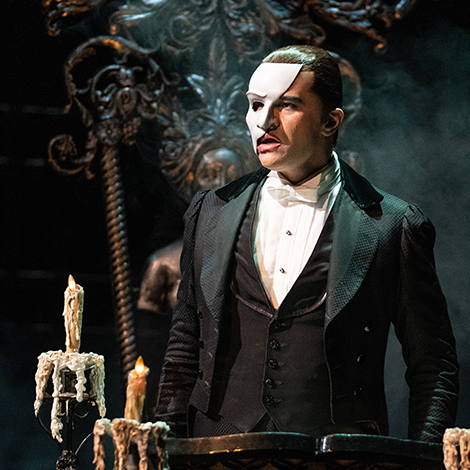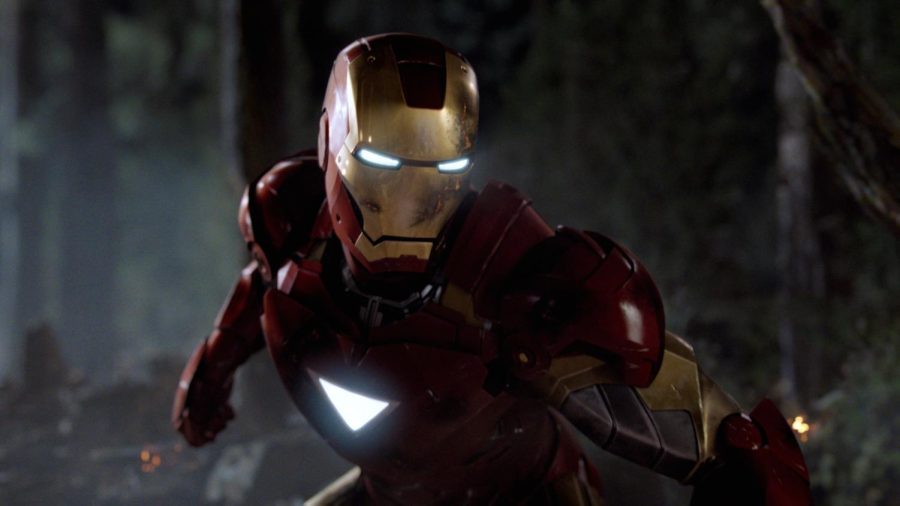The Who’s “Tommy,” a rock musical written by The Who’s Pete Townshend, was an impressively staged show at the Academy of Music in Northampton over the weekend, but was marred by several technical glitches and a plot that was wrapped up unconvincingly.
Under the direction of Devon Bakum, the musical performance was superb. For such a complex composition, few groups could have done better. They were perfect.
The actors distinguished themselves similarly, both in singing – again directed by Bakum – and expression. Andrew Gilbert was wonderfully depraved as Uncle Ernie in “Fiddle About.” Normand Caissie, who played Tommy at 10-years-old gave what was perhaps the most impressive performance of all. Playing Tommy for the middle third of the play, Caissie ends up with some of the most demanding parts, since he must remain “blind, deaf and dumb” while still reacting to being thrown through the air in “Acid Queen,” molested in “Fiddle About” and physically abused in “Cousin Kevin.” Paul Adzima also distinguished himself as the character of Cousin Kevin.
“Tommy” was also noteworthy for its dancing. With choreography by David Wallace (who also played the lover of Tommy’s mother in “Twenty One” and had a central part in “Pinball Wizard”), the sheer violence of The Who’s music was brought to life. Characters were almost always moving and moving wildly, at that, enough so that one almost expected a collision. Amusingly, Tommy frequently crowd-surfed through scenes.
The costumes were also a spectacle. Constructed by Pam Boisvert, Janet Morgan and Erin Greene, they were incredibly authentic, from the Royal Air Force uniforms worn at the beginning to mid-60s Carnaby Street-style miniskirts and whatnot. The only real problem was that some of the extra police officers in “Twenty One” wore high heels.
The performance was hurt by several technical glitches. Microphones refused to cooperate in the scene where Tommy’s mother is informed her husband has been killed in action and throughout “Sally Simpson.” Even when the microphones worked properly, some of the actors failed to sing loudly enough, and the music drowned their voices out.
The plot was difficult to follow in places. While simple in the beginning – Tommy Walker witnesses a murder, his parents order him to suppress the memory, causing him to become semi-catatonic. Tommy then suffers from abuse, until he’s miraculously cured when his mother smashes a symbolic mirror.
After that, though, it becomes hard to tell what happens. For some reason, his miracle cure and prowess at pinball result in him becoming a combination of messiah and rock star and, in a completely unexplained twist, everyone suddenly leaves him as rapidly as they started following him, as he starts hugging his family members. In the meanwhile, there’s an odd interlude with “Tommy’s Holiday Camp,” which isn’t explained either, except as a scheme of Uncle Ernie’s. It’s a jarring number and difficult to understand how it fits in. The last quarter of the play leaves the great gaping plot hole of why people follow Tommy as a messiah.
The plot problems, however, can be blamed squarely on author and composer Pete Townshend and not on Greene Room Productions or any of the people involved in the performance. It was a fine show and they made excellent use of the material.
Matt Robare can be reached at [email protected].






